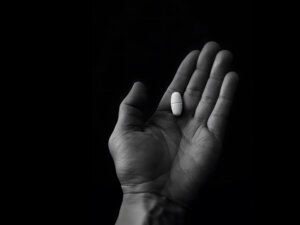This is a worldwide call to everyone, on the awareness of kidney diseases and the need to be actively involved in their kidney health status.
The theme “Kidney Health For All” focuses on sharing adequate knowledge on measures needed to keep the kidney healthy; these measures include:
- Adopting a healthy diet and lifestyle such as access to clean water, exercise, and tobacco control to maintain good kidney health, preserve kidney function, and increase overall general awareness of the importance of kidneys.
The kidneys are two bean-shaped organs in the body, each about the size of a fist. They are located just below the rib cage, one on each side of your spine.
“Kidney Health For All” requires that you know the details below:
The Functions of Your Kidney
According to an article published by the National Institute of Diabetes, Digestive and Kidney Diseases 2022, the function of the kidney includes the following.

- Remove waste products from the body
- Remove drugs from the body
- Balance the body’s fluids
- Release hormones that regulate blood pressure
- Produce an active form of vitamin D that promotes strong, healthy bones
- Control the production of red blood cells
The Common Diseases Associated With The Kidney
According to a publication by Healthline 2018, the following are the common diseases associated with the kidney.
- Chronic kidney disease: chronic kidney disease (CKD) is a worldwide public health problem, with adverse outcomes of kidney failure, cardiovascular disease (CVD), and premature death. CKD is defined as kidney damage or glomerular filtration rate (GFR) <60 mL/min/1.73 m2 for 3 months or more, irrespective of cause. It is the most common form of kidney disease.
- Kidney stones: Kidney stones (also called renal calculi, nephrolithiasis, or urolithiasis) are hard deposits made of minerals and salts that form inside your kidneys.
- Glomerulonephritis: Glomerulonephritis is inflammation of the tiny filters in the kidneys, characterized by hematuria and proteinuria.
- Polycystic kidney disease: Polycystic kidney disease (PKD) is a genetic disorder that causes cysts to grow in the kidneys, where they can disrupt functioning. Health complications include high blood pressure and kidney failure.
- Urinary tract infections: A urinary tract infection (UTI) is an infection in any part of your urinary system; the kidneys, ureters, bladder, and urethra.
Risk Factors of Kidney Diseases
- Diabetes.
- High blood pressure.
- Heart (cardiovascular) disease.
- Smoking.
- Obesity.
- Being Black, Native American, or Asian American.
- Family history of kidney disease.
- Abnormal kidney structure.

A healthy kidney is achievable when you follow these tips;
According to an article by the National Health Service 2021, the following are tips to keep the kidneys healthy.
- Keep active and fit: You do not have to run marathons to reap the reward of exercise. Regular walking, running, cycling, and even dancing is great for your health. Find an activity that keeps you busy and have fun. It will be easier to stick to it and have great results.
- Monitor weight and eat a healthy diet: Focus on eating fresh ingredients that are naturally low sodium, such as cauliflower, blueberries, fish, whole grains, and more. People who are overweight or obese are at risk for several health conditions that can damage the kidneys. These include diabetes, heart disease, and kidney disease.
- Drink plenty of fluids: Drink eight glasses of water a day to stay hydrated and keep your kidneys healthy. Aim for at least 1.5 to 2 litres a day. Exactly how much water you need depends largely on your health and lifestyle. Factors like climate, exercise, gender, overall health, and whether you are pregnant, or breastfeeding are important to consider when planning your daily water intake. People who have previously had kidney stones should drink a bit more water to help prevent stone deposits in the future.
- Avoid self-medicating: Nonsteroidal anti-inflammatory drugs (NSAIDs), including ibuprofen and naproxen, can damage your kidneys if you take them regularly for chronic pain, headaches, or arthritis. Beware of the amount of over-the-counter medicine (OTC) pills you take
- Have your kidney function tested if you’re at high risk: It is important to know your kidney health status. Getting ahead of any damage can help slow or prevent future damage.
- Control your blood sugar.
- Monitor blood pressure.
- Do not smoke.
Conclusion
Kidney diseases are silent killers, capable of affecting the quality of your life. Maintaining kidney health is an important factor when you want to achieve overall health and general well-being. Keeping your kidneys healthy, allows your body to filter and expel waste properly and produce hormones to help your body function properly.











One Response
Are there any known cures or preventive life style that could improve 1) eGFR and 2) decreased creatinine level in the blood